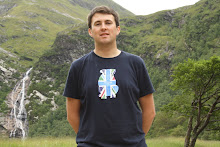The "digital election" has been well reported, from interesting (though at times silly) blogs, more series articles on the phenomenon, as well as the websites and social media accounts of candidates.
One example of Web2.0 at work in the election is this attempt by the Guardian for readers to assess the campaigning in their constituency. Readers simply enter their post code, the party campaigning and a rating from 1-5 of how "active" that political party has been. The map is formed by users tweeting the data to them:
Tweet your score, postcode and the party abbreviation with the hashtag #ukvote - eg N1 LAB 3 #ukvote or CV32 CON 4 #ukvote -
What does this have to do with digital history? Isn't this simply election journalism in the internet age? Well I thought about this for a while, is this really something of historical value?
I think that this is of historical value as it potentially shows us where political parties are focusing on, it provides a lot of data albeit in a rather simplistic way. In twenty years time if we were to assess the 2010 UK General Election it might be of use to look at a collaborative effort such as this to see where campaigns were highly fought.
Twitter in Elections:
The screen shot above is from my Twitter account, while I was using a Google Chrome extension for Twitter. The image is annotated to show the differing tweets from those involved in the General Election.


No comments:
Post a Comment